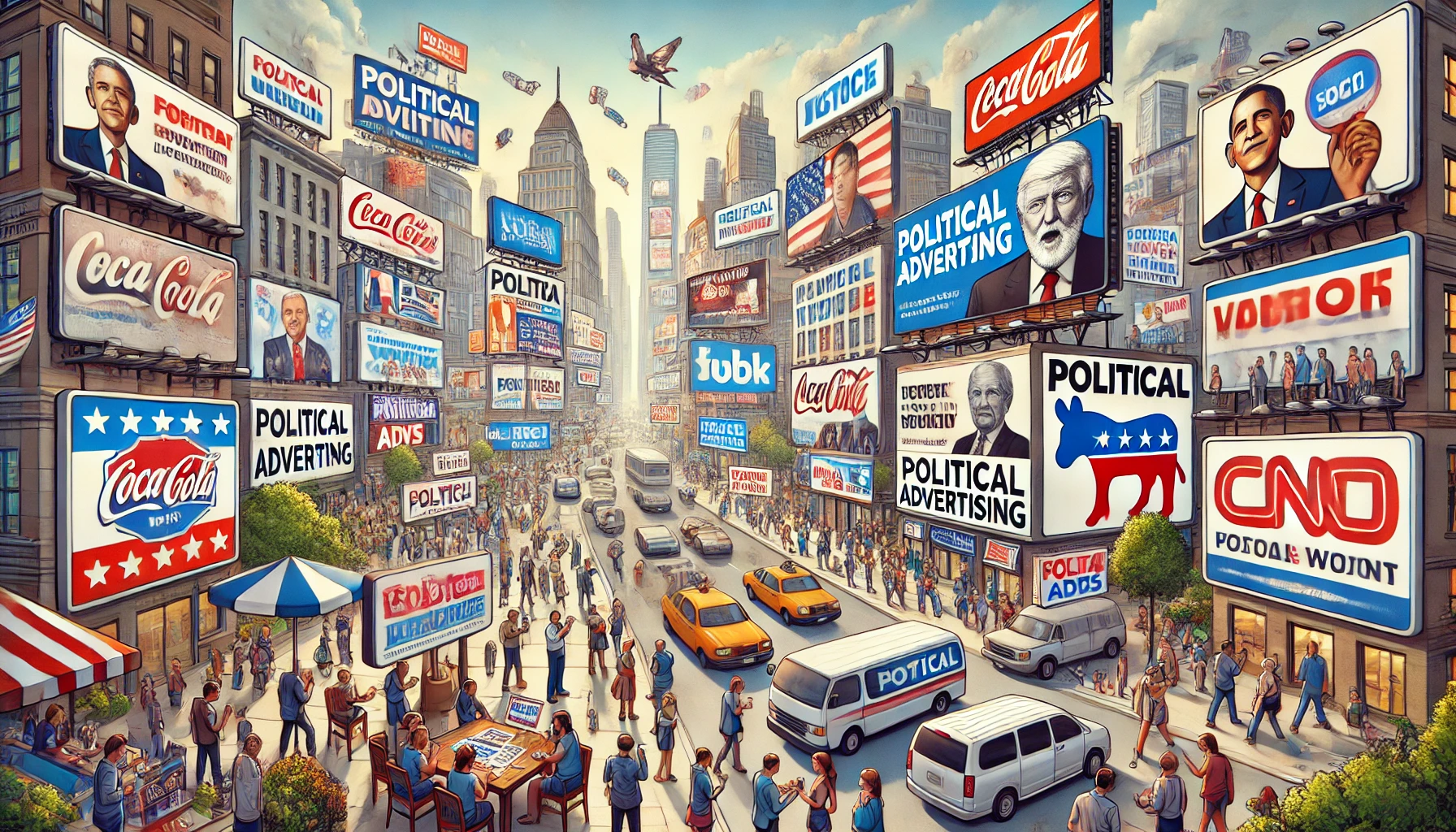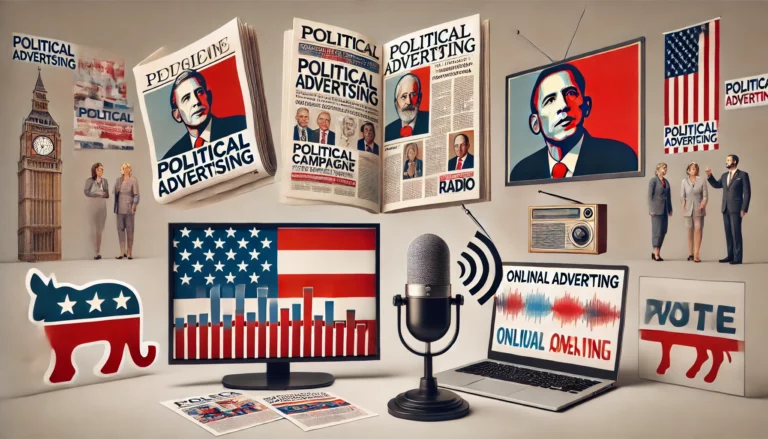Role of Political Advertising in Shaping Public Opinion
In today’s fast-paced world, political advertising has become an indispensable tool in the arsenal of any campaign. Whether through television, radio, social media, or print, political ads play a significant role in shaping public opinion. Let’s dive deep into how these advertisements impact voters and why they are so crucial in the political landscape.
The Evolution of Political Advertising
Political advertising has come a long way from the simple posters and flyers of the past. Today, it’s a sophisticated blend of data analytics, targeted messaging, and multimedia platforms. This evolution has not only increased the reach of political messages but has also made them more persuasive and personalized.
From Traditional to Digital Media
In the early days, political ads were primarily disseminated through newspapers, posters, and public speeches. With the advent of radio and television, the scope and influence of political advertising expanded significantly. Now, in the digital age, social media platforms like Facebook, Twitter, and YouTube have revolutionized political campaigning.
Advantages of Digital Media:
- Targeted Advertising: Campaigns can now reach specific demographics with tailored messages.
- Cost-Effective: Digital ads are generally cheaper than traditional media.
- Interactive Content: Videos, infographics, and interactive posts engage users more effectively.
How Political Ads Influence Public Opinion
Political advertising’s primary goal is to influence voter behavior and public perception. Here are some ways it achieves this:
Emotional Appeal
Political ads often rely on emotional appeal to connect with voters. By tapping into emotions like fear, hope, and patriotism, these ads can make a lasting impression. Emotional appeal can be compelling in swaying undecided voters or reinforcing the beliefs of a candidate’s base.
Persuasion through Repetition
The mere exposure effect suggests that people tend to develop a preference for things they see repeatedly. Political campaigns utilize this psychological phenomenon by bombarding voters with consistent messages. Repetition helps reinforce the campaign’s key points and can make slogans and taglines stick in voters’ minds.
Highlighting Key Issues
Political ads are effective in highlighting key issues that resonate with voters. By focusing on topics like healthcare, education, or the economy, campaigns can align themselves with the concerns of their target audience. This alignment can significantly influence public opinion and voter priorities.
Negative Advertising
Negative advertising, or attack ads, aims to discredit opponents rather than promote the advertiser’s platform. While controversial, these ads can be highly effective. They often expose opponents’ weaknesses or scandals, thereby shifting voter sentiment. However, these ads need to be factual and not overly aggressive, as they can backfire if perceived as unfair.
The Impact of Political Advertising on Elections
Case Studies of Successful Campaigns
To understand the impact of political advertising, let’s look at a few successful campaigns that utilized these strategies effectively.
Barack Obama’s 2008 Campaign
Obama’s 2008 campaign is often cited as a groundbreaking example of digital political advertising. By leveraging social media platforms and employing targeted ads, the campaign successfully mobilized younger voters and created a strong grassroots movement.
Donald Trump’s 2016 Campaign
Trump’s 2016 campaign was notable for its aggressive use of social media and targeted digital ads. By focusing on specific voter demographics and utilizing emotionally charged messages, the campaign was able to sway public opinion in critical swing states.
The Downside: Misinformation and Manipulation
While political advertising can positively engage and inform voters, it also has a darker side. The spread of misinformation and fake news through political ads has become a significant concern. Campaigns can exploit digital platforms to disseminate false or misleading information, manipulating public opinion and undermining democratic processes.
The Power of Political Advertising in Shaping Public Perception
In the realm of modern politics, political advertising stands as a pivotal force in shaping public perception. These ads, whether disseminated through traditional media or digital platforms, play a crucial role in informing and influencing voter behavior. Political campaigns leverage data analytics and targeted messaging to reach specific demographics, ensuring their message resonates with the intended audience. By highlighting key issues, employing emotional appeal, and utilizing repetition, political ads can effectively sway public opinion and impact election outcomes. As we move further into the digital age, the importance of ethical and accurate political advertising cannot be overstated.
Conclusion: The Future of Political Advertising
As technology continues to evolve, so too will the strategies and tools used in political advertising. Future campaigns will likely see even more sophisticated targeting techniques and innovative platforms. However, with this evolution comes the responsibility to maintain ethical standards and ensure that political ads are truthful and fair.
Essential Takeaways:
- Political advertising has evolved from traditional media to highly targeted digital campaigns.
- Ads influence public opinion through emotional appeal, repetition, and issue alignment.
- Negative advertising can be effective but must be used carefully.
- Successful campaigns like Obama’s 2008 and Trump’s 2016 demonstrate the power of digital ads.
- Misinformation remains a significant challenge in political advertising.
- Ethical and accurate advertising practices are essential for maintaining democratic integrity.
In summary, political advertising is a powerful tool that can shape public opinion and influence election outcomes. As voters, it’s essential to critically evaluate the ads we see and seek out accurate information. As political strategists, we must use these tools responsibly, ensuring that our messages are truthful and serve the public good.






